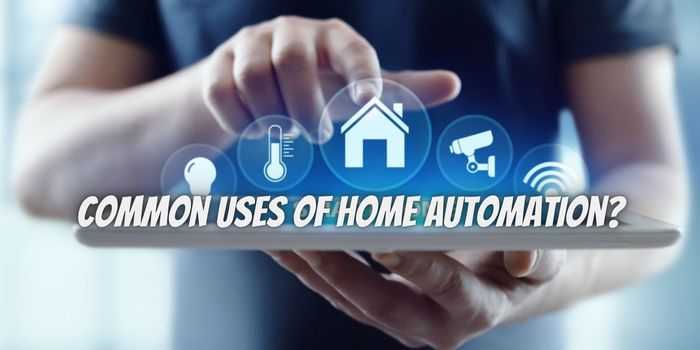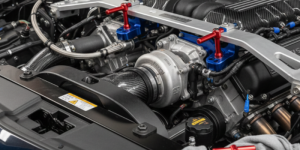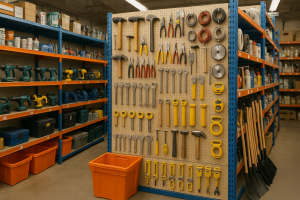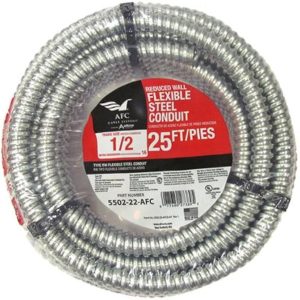What Are the 3 Common Uses of Home Automation?
Home automation is the automatic control of household features, appliances, and activities. It lets you control different features and utilities of your home via the Internet, making your life convenient and secure. It is made from a network of hardware, electronic interfaces, and communication that work together to integrate everyday appliances and devices. Each of these devices has sensors and is connected through WiFi. You can manage them with your tablet or smartphone from your home or far away.
All home automation systems have three main elements – the sensors, controllers, and actuators:
- The sensors monitor changes in temperature, daylight, or movements enabling the home automation system to adjust its settings accordingly.
- The controllers are devices like tablets, personal computers, or smartphones that send and receive messages about the automated features.
- The actuators could be the devices that are being controlled. For instance, your light switches, motorized valves, and motors that control the functioning or mechanisms of the home automation system. These devices respond to the remote command from the controller and get activated.
Three Common Uses of Home Automation
Home automation systems have several benefits and uses. But the most common uses include HVAC regulation, lighting control, and home security:
HVAC Regulation
As fuel costs go up and the availability of our resources becomes a concern, heating and cooling our homes efficiently has become more of a necessity and less of a luxury. Over the last few years, automated heating systems and thermostats have become more readily available and can be easily integrated into our homes. Heating and cooling our homes cost about 50% of energy costs annually, making HVAC regulation rewarding. Home automation systems learn your cooling and heating preferences over time and help you keep your home cool or warm from anywhere. These systems can be controlled from your smartphone, making it easy for you to regulate your home’s temperature.
Lighting Control
Smart lighting lets you control your wall switches, lamps, and blinds. You can schedule the times that your lights should turn off or on, choose the rooms that require lights, decide the time when the lights should be on, choose the brightness, and also control how certain lights react to motion sensitivity.
Security
Home automation can play a vital role in making your home more secure and safe. Bluetooth-enabled electronic deadbolts, smart locks, and many other connected home security systems offer various features like motion detectors, window and door sensors, recording mechanisms, and video cameras. All these security systems can be connected to a mobile device and accessed via the cloud, enabling you to get real-time information about your home’s security.
Other Benefits of Home Automation
While the abovementioned three are the most common uses of home automation systems, there are other uses as well, like:
Lawn Irrigation Systems
A healthy and lush lawn not only improves your curb appeal but is also a source of pride for you as a homeowner. However, the weather and other aspects may not always help you maintain your lawn the way you would want to. For years, homeowners have relied on sprinkler systems to keep yards maintained and fresh. But monitoring these systems and getting them to work manually can be time-consuming. However, automated sprinkler control systems can help you monitor the sprinklers and regulate the use of water in real time. The system can take local weather data and based on that decide how much water to use. In addition, these systems can get alerted of dry conditions and be programmed to supply the required amount of nourishment to your yard without over-watering.
Smart Appliances
Smart kitchen appliances are considered to be the next big thing in home automation. They can help you scan grocery store receipts and also maintain an inventory of your items. Some systems may also suggest recipes based on what is there in your refrigerator and inform you when it is time to replace the items. Similarly, smart ovens can sync with your phone and automatically preheat to the required temperature based on the recipe you are working on. Another benefit of smart kitchen appliances is that they can help you control energy consumption. By automating these appliances and accessing them through your smart device, you can reduce the electricity supplied to unused appliances, reducing your energy costs.
Today, we are on the brink of a leap in technological developments in home automation. We see new technologies and systems being introduced into our lives every day. If you are interested in learning more about home automation systems or want to integrate some of them into your house, contact Advanced Living Solutions. They are a technology company that can help you set up automation systems in your home. They have worked on thousands of residential and commercial projects and can help you with lighting control, heating and cooling integration, intercom systems, blind control, home theatre systems, access control systems, and security alarm systems.














Post Comment
You must be logged in to post a comment.